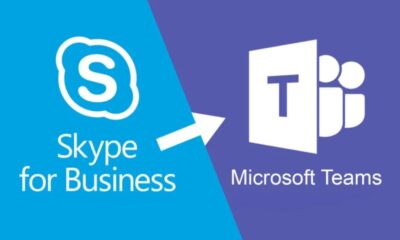Startup
Find the Best Tax Preparer or Other Tax Professional Near You with These Tips

Have you ever inquired about the credentials of a tax preparer that you’ve worked with in the past?
Even though tax preparers have access to your most private information, such as bank account information, marital status, child support, and Social Security number, a large number of people do not.
During tax season, use these eight suggestions to identify the best tax preparer or professional in your area.
Find a tax preparer or other tax professional near you with these eight tips.
- Request a PTIN, or preparer tax identification number
A preparer tax identification number, or PTIN, is mandated by the IRS for anyone who prepares or assists in preparing federal tax returns for compensation. Take note of the word “for compensation”; PTINs are not required for volunteer tax preparers. As required by the IRS, make sure your income tax preparer includes their PTIN number on your return.
- Call for the designation of enrolled agent, law license, or CPA
How can you locate the most qualified tax preparer in your area who meets your requirements? Using the IRS directory is one method. Preparers having PTINs and professional credentials accepted by the IRS are included. Preparers who are volunteers or who only have PTINs will not be included in the database.
It doesn’t hurt to go above and beyond and look for a credentialed preparer who is also a certified public accountant (CPA), licensed attorney, or enrolled agent (EA). A PTIN is a fundamental requirement that is reasonably easy to obtain. Each designation will require a different amount of continuing education, but these professionals are usually expected to have more training and experience.
Working with a tax expert who has finished the IRS’s Annual Filing Season program is another option. Programs like Accredited Tax Preparer and Accredited Business Accountant/Advisor assist preparers in meeting the Annual Filing Season Program requirement.
- Search for friends in high places
A tax professional should always be a member of a professional organization because most of them have requirements for professional conduct, codes of ethics, and certification programs. Professional associations might also be in a better position to put you in touch with a tax preparer whose qualifications and experience match your requirements.
You can also find out if the financial advisor you currently deal with provides tax planning or advisory services. Your company might have no trouble putting you in touch with a tax expert.
- Perform a background search
When tax season approaches, you may not want to think about checking someone’s credentials or employment history but going the extra mile could guarantee that your financial information is in good hands. Verifying the preparer’s or company’s standing with the Better Business Bureau (BBB) is one approach to accomplish this. Depending on your preparer’s exact title, you can also delve further into their past:
- Enrolled agents: Send an email to the IRS to confirm your title.
- Certified Public Accountants: Check with the board of accountancy in your state or use the CPA Verify tool.
- Tax attorney: Speak with the bar association in your state.
- Examine tax preparation fees
What is the fee for tax preparers? A 2023 Drake Software survey of more than a thousand tax preparers in the US revealed that the average fee that preparers anticipate charging for preparing a nonitemized Form 1040 in 2024 was $251. An itemized Form 1040 incurs an additional fee of $298.
Tax preparers frequently charge one of two prices: either a flat fee for all forms and schedules required for your return or a minimum fee plus additional costs based on the complexity of your return. A warning sign is if the tax preparer you choose bases their fee on the amount of your refund or claims to be able to get you a bigger refund than the competition.
- Examine tax preparers who do not use electronic filing.
Any paid preparer who prepares more than 11 returns for clients is required by the IRS to use the e-file system to submit their work electronically. Your tax preparer might not be doing as much tax preparation as you had assumed if they don’t offer e-file.
- Verify that they will sign the dotted line.
Paid preparers are required by law to provide their PTINs and sign the returns of their clients. Never sign a blank tax return because the preparer might include their own bank account number or anything else they want to use to steal your refund.
- Determine whether they would support you.
You can represent yourself in front of the IRS regarding audits, payments, collection issues, and appeals through enrolled agents, CPAs, and attorneys with PTINs. Regardless of whether they prepared your return, preparers with only PTINs are unable to. Only in certain situations may preparers who have finished the Annual Filing Season Program represent clients.
Availability is also very important. The best tax preparers will answer the phone, reply to emails, and even arrange a visit once filing season is over and your tax return has been filed.
If you don’t need to see a tax expert in person, you might think about obtaining assistance online. Nowadays, a lot of online tax preparers provide live support, so you can get assistance right away if you have any questions during the filing process.
Is visiting a tax preparer helpful?
A free tax filing service might be all you need if your tax return is fairly straightforward. Instead of seeing an in-person professional, those with more complex tax situations may find that paid packages from tax providers are a less expensive option to get their taxes done.
Working with a tax preparer or other tax professional may be worthwhile if you are a small business owner, have a challenging tax year, are a novice investor, or simply want to speak with someone in person.
What’s the difference between a CPA and a tax preparer?
A certified public accountant, or CPA, is a person who has passed both exams and educational requirements to be licensed to practice accounting. They might have a focus on taxation or other specific areas of accounting.
However, the term “tax preparer” refers to a broad category of professionals who prepare tax returns, regardless of their level of education or experience. Anyone who gets paid by the IRS to prepare a tax return is required to have a preparer tax identification number or PTIN.
-

 Business2 weeks ago
Business2 weeks agoNayef Doleh Examines International Humanitarian Fundraising Strategies
-

 Business3 weeks ago
Business3 weeks agoHow Black Banx is Redefining Global Banking Strategies in 2025
-

 Business2 weeks ago
Business2 weeks agoHow to fill MSME Form 1? Step-by-Step Guide
-

 Tech4 weeks ago
Tech4 weeks agoHow to Switch Between Microsoft Teams and Skype, How To Export Messages, Files, and Contacts from Skype Before It Shutting Down
-

 Tech3 weeks ago
Tech3 weeks agoMicrosoft Teams to End SMS Messaging Feature Support for Android Phones and Switch to Phone Link App as Alternative
-

 Business4 weeks ago
Business4 weeks agoPurpose of the AIRdiamond Project
-

 Education3 weeks ago
Education3 weeks agoSchool Of Odd Thinkers – Think Odd, Learn a lot, and Earn a lot
-

 Startup4 weeks ago
Startup4 weeks agoFrom Trends to Sales: How Small Businesses Can Capitalize and Maximum Reach on Social Media











